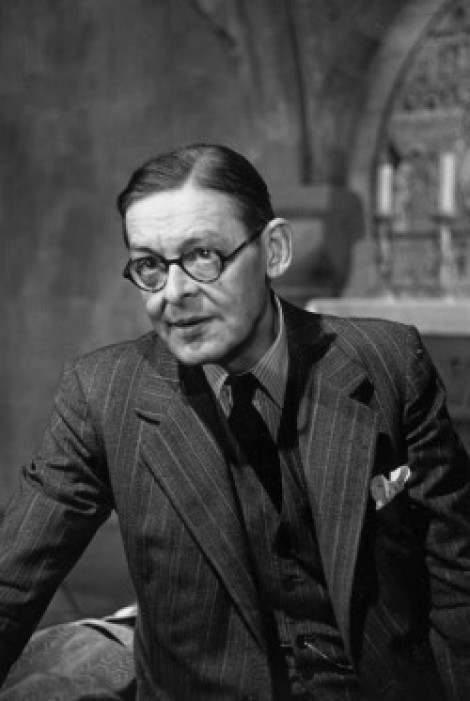ELIOT, T.S.
"And should I then presume? And how should I begin?"
Born in America, Thomas Stearns Eliot settled in Britain in 1914 where he found work as a teacher and in banking. However his interests lay in poetry, having been influenced by the “bright, delicious and painful colours” of The Rubaiyat of Omar Khayyam whilst studying at Harvard. His first major work, (and what became known as the first modernist poem) The Love Song of J Alfred Prufrock was shown in manuscript form to Ezra Pound, who was instantly impressed, and arranged for it to be published in Poetry in 1915. Prufrock and Other Observations was subsequently published in 1917, and established Eliot as a leading figure of the modernist movement. Only 5 years later he published The Waste Land, which is not only generally considered to be his greatest work, but is also, along with Joyce’s Ulysses, usually regarded as the greatest work of all modernist literature. In 1925 his key early collection of poetry entitled Poems 1909-1925 marked the start of Eliot’s association with Faber. The association was a close one, not only was Eliot a director at Faber until his death, but he was also Godfather to Geoffrey Faber’s son Tom – a relationship which led directly to the creation of a series of anthropological verse that was to be collected as Old Possum’s Book of Practical Cats. His last great poetical venture was The Four Quartets, a series of meditations linked by the four seasons and four elements, but he was by this time primarily interested in writing plays and engaging in literary criticism, and he made significant contributions in both fields. However he will probably always be regarded as the most dominant figure in twentieth century poetry in the English-speaking world.
He was awarded the Nobel Prize for literature in 1948 "for his outstanding, pioneer contribution to present-day poetry".
Please scroll down to view our current holdings of T.S. Eliot first editions and signed copies of Eliot's works.
Add to favourites




